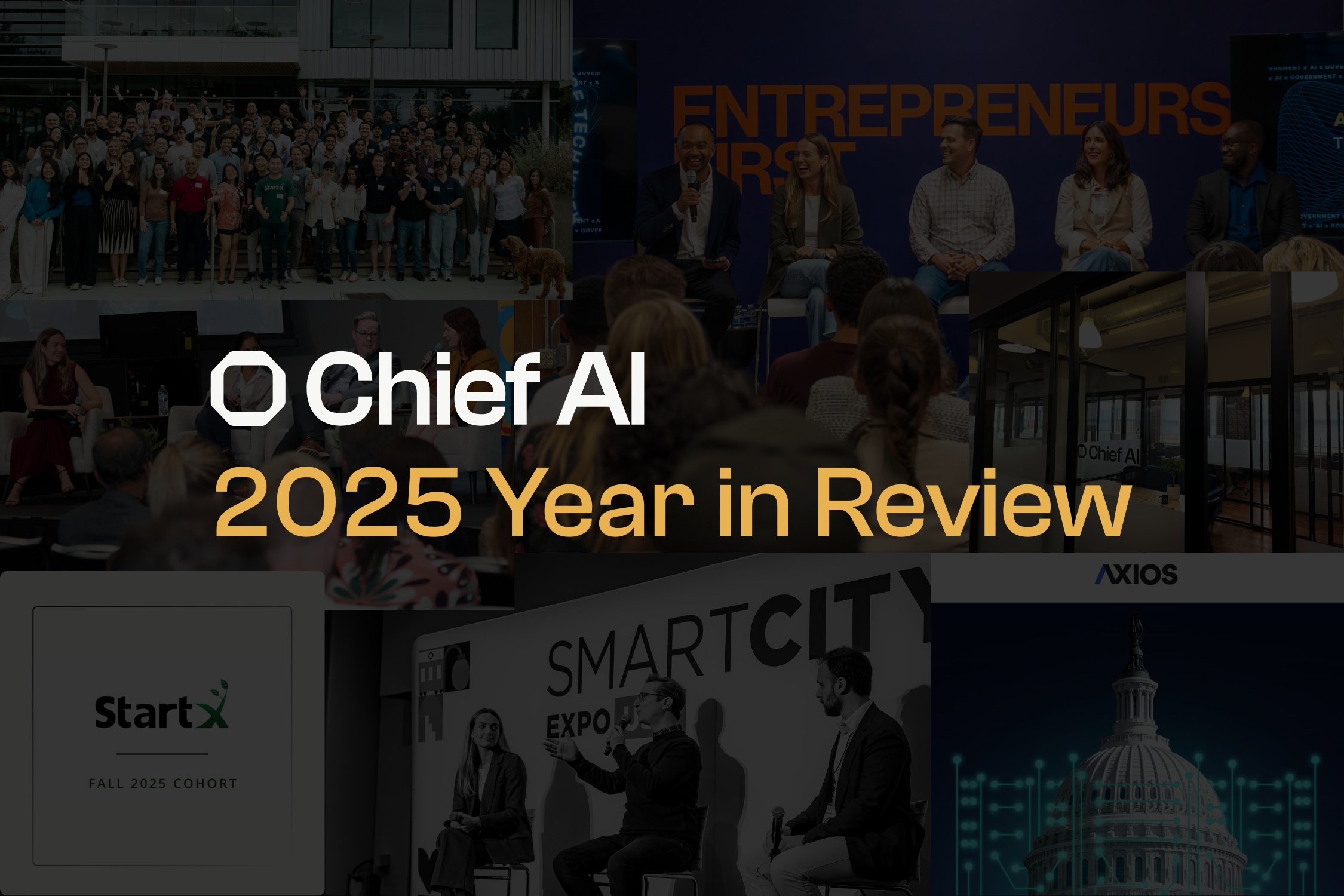One year ago, Chief AI Founder and CEO Shannon Beckham stepped on stage to pitch at the inaugural Denver AI Summit (DenAI), the nation’s first city-led AI conference.
Drawing on her background in government, Shannon asked a simple but transformative question: What if AI could help government officials lead better? She introduced the vision for a new AI-powered platform designed to help executives and their teams cut through administrative clutter, manage time and relationships more strategically, and stay focused on the priorities that matter most to their communities.
This year, Shannon returned to the second annual DenAI Summit to see that vision realized. Denver Mayor Mike Johnston's team now uses Chief AI to manage the mayor’s schedule, relationships, and priorities in one intelligent workspace. Shannon also served as moderator for a mainstage panel, “How Governments Can Procure AI,” which explored how cities are turning AI’s potential into measurable public-sector results.
It was a full-circle moment: from pitching an idea to seeing it implemented in one of the most forward-thinking city governments in the country.

A Summit with Purpose
DenAI 2025 carried a renewed sense of urgency. Cities across the country are navigating fiscal pressures, workforce shortages, and growing expectations from residents. The conference brought together leaders from government, academia, and industry to explore how AI can make government more effective, efficient, and trusted.
The panel discussion on “How Governments Can Procure AI” was moderated by Shannon Beckham and featured the following panelists:
- Dheekshita Kumar, CEO of CivCheck
- Luke Norris, VP of Platform Enablement at Granicus
- Bianca Lochner, CIO for the City of Scottsdale
Together, they discussed how local governments and startups are collaborating to identify the right challenges for AI to address, how to structure procurement for success, and how to measure the impact of these tools in real-world settings.
Procurement as a Platform for Innovation
Procurement has often been viewed as a bureaucratic barrier, but the discussion highlighted how it can instead serve as a powerful engine for innovation.
Bianca Lochner described how Scottsdale is modernizing procurement through more pilots, faster feedback loops, and clear success metrics that balance experimentation with transparency.
Luke Norris, whose work at Granicus has supported thousands of agencies, noted that the best outcomes occur when governments clearly define their challenges and vendors act as collaborative partners rather than traditional contractors.
The panel agreed: modern procurement isn’t about shortcuts — it’s about clarity and collaboration.
Trust and Responsible AI
When governments adopt AI, trust becomes the most important currency.
Dheekshita Kumar shared how CivCheck has built credibility with early government partners by prioritizing explainability and transparency, ensuring leaders understand how AI reaches its conclusions.
Bianca Lochner emphasized that Scottsdale assesses every AI solution through the lens of public trust, confirming it adds measurable value while protecting privacy.
Denver’s Leadership: From Pilot to Practice
Few cities exemplify their commitment to AI more than Denver.
Earlier this year, Mayor Mike Johnston’s office began using Chief AI to bring structure and intelligence to daily decision-making. The system unifies scheduling, briefing preparation, and follow-up in a single platform, surfacing the context city leaders need to act efficiently and strategically.
For Denver, the initiative represents part of a broader commitment to innovation. When Mayor Johnston launched DenAI, he made it clear that AI would be central to improving city operations. One year later, Denver is not just hosting the national conversation on AI in government, it’s leading it.
Looking Ahead
The DenAI Summit continues to show that innovation is about moving forward with intention; building systems, partnerships, and tools that help public institutions serve people better.
For Chief AI, returning to the Summit one year after its debut marks an important milestone: evidence that the company’s mission to help leaders operate confidently and efficiently is already taking root in the cities shaping the future of governance.





